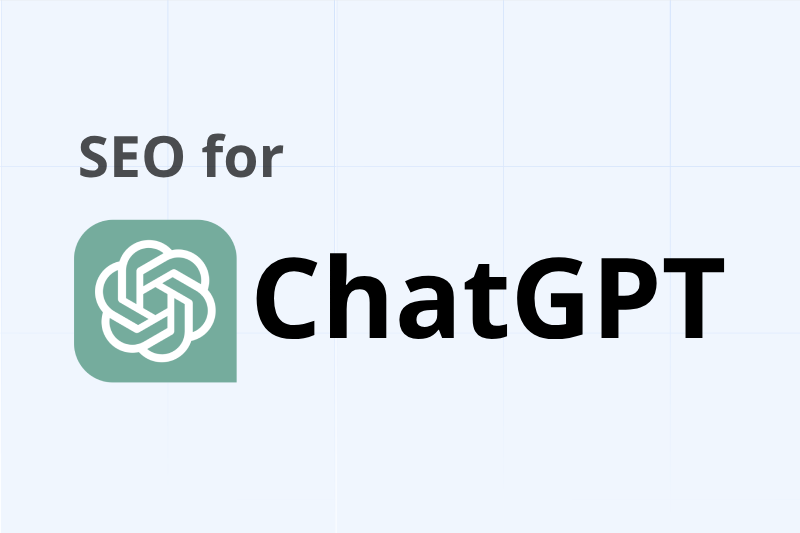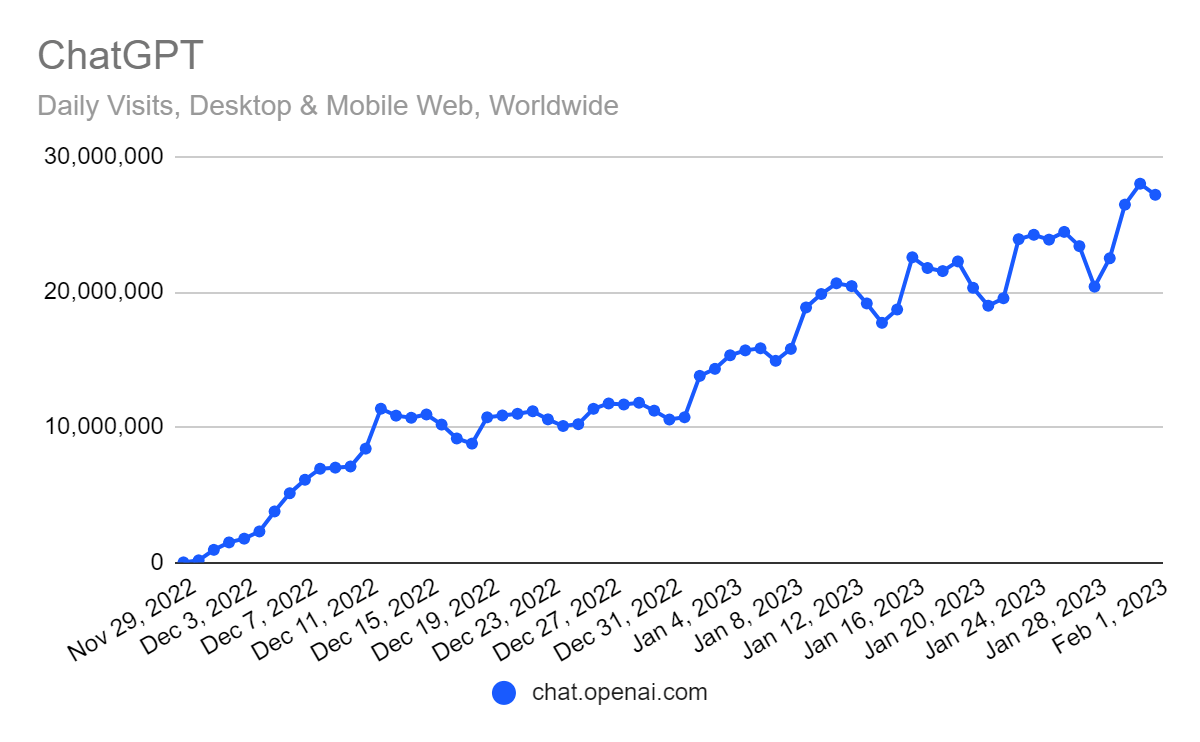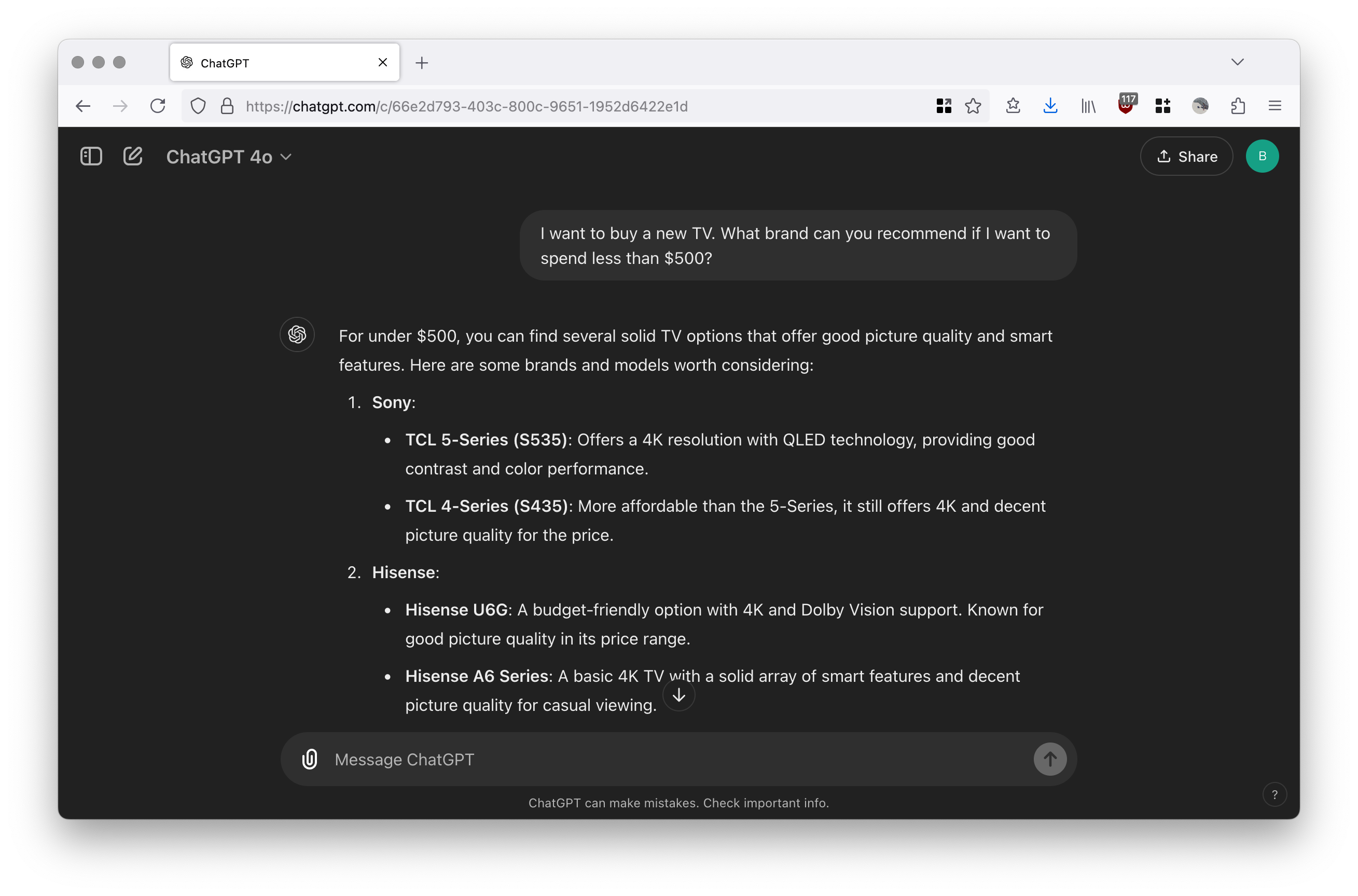LLMO, GAIO, AIO: Understanding SEO for ChatGPT & AI Search

Explore the emerging field of LLM optimization (LLMO), (Generative) Artifical Intelligence Optimzation (GAIO or AIO) and learn strategies to improve your content visibility in AI-generated responses from platforms like ChatGPT. (8 min read)
Table of contents
- What is LLM Optimization?
- Why is LLM Optimization important?
- Key strategies for LLM Optimization
- On-page LLM Optimization techniques
- Off-page LLM Optimization techniques
- The future of LLM Optimization
What is LLM Optimization?
LLM Optimization, also known as LLMO, GAIO, or AIO, refers to the practice of optimizing web content to improve visibility and relevance in AI-powered search results and language model outputs. This emerging field aims to help companies prominently place their brand, services, and products in the outputs of leading Generative Engines, such as ChatGPT, Google Gemini, and Google SGE (Search Generative Experience).
| Term | Full Name | Focus |
|---|---|---|
| LLMO | Large Language Model Optimization | Optimizing for general LLMs |
| GAIO | Generative Artificial Intelligence Optimization | Broader focus on all generative AI |
| AIO | Artificial Intelligence Optimization | General AI optimization |
| AEO | Answer Engine Optimization | Focusing on AI-powered answer engines |
| GEO | Generative Engine Optimization | Specific to generative AI engines |
The key difference between traditional SEO and LLM optimization lies in the target audience. While SEO primarily focuses on optimizing for human users and search engine algorithms, LLM optimization aims to make content more accessible and relevant for AI models. This shift requires a new approach to content creation and structuring, emphasizing clarity, conciseness, and direct answers to potential queries.
Why is LLM Optimization important?
As AI-driven search experiences become more prevalent, traditional SEO strategies alone are no longer sufficient. LLM optimization matters because it addresses the changing landscape of information retrieval and content consumption.

With ChatGPT's user base exceeding 250 million monthly active users, a significant portion of online queries are now being processed through AI models. These users rely on AI-generated responses for information and assistance, bypassing traditional search engine results pages. This shift in user behavior necessitates a new approach to ensuring your content reaches its intended audience.
| Platform | User Base | Impact on Search |
|---|---|---|
| ChatGPT | 250M+ monthly active users | Direct AI-generated responses |
| Google Gemini | 140M+ monthly active users | Potential to reshape search landscape |
| Google SGE | Rolled out in many countries | AI-enhanced search results |
Moreover, AI-enhanced search engines like Google SGE are changing how information is presented to users. Instead of a list of links, users are increasingly presented with direct answers or summaries generated by AI models. To remain visible in these AI-generated responses, content creators must adapt their strategies to align with how LLMs process and prioritize information.
Early adoption of LLM optimization strategies can provide a significant competitive advantage in the digital landscape. As this field is still in its infancy, businesses that invest in understanding and implementing these techniques now will be better positioned to maintain and grow their online presence as AI continues to shape the future of search and information retrieval.
Key strategies for LLM Optimization
It's crucial to understand that we're not just optimizing for keywords anymore. Instead, we're optimizing for answers.
To succeed in LLM optimization, focus on these core strategies:
- Optimize for answers, not just keywords
- Structure content for easy information extraction
- Build authority through high-quality backlinks and mentions
- Create unique, data-driven content
- Engage with knowledge aggregators and authoritative platforms
This shift requires a different approach to content creation and optimization. We need to think about how our content can best answer specific questions and provide valuable information that LLMs will want to retrieve and present to users.
When creating content, consider the types of questions your target audience might ask and structure your content to provide clear, concise answers to these questions. This approach not only makes your content more LLM-friendly but also improves its value for human readers seeking quick, accurate information.
Building authority remains a crucial aspect of optimization, but in the context of LLMs, it extends beyond just acquiring backlinks. Mentions of your brand or content on authoritative platforms, even without links, can contribute to your perceived authority by LLMs. This is because LLMs often consider the context and associations of entities mentioned in their training data.
On-page LLM Optimization techniques
When it comes to on-page optimization for LLMs, the focus shifts from optimizing individual pages for specific keywords to optimizing all our content to increase the likelihood of appearing in AI-generated responses. Here are some key techniques to consider:
Content structure and format
| Technique | Description | Example |
|---|---|---|
| Clear language | Use simple, concise wording | Instead of "utilize," use "use" |
| Key takeaways | Summarize main points at the start | "In this article, you'll learn: 1) ..., 2) ..., 3) ..." |
| Direct answers | Begin sections with concise answers | Q: "What is LLMO?" A: "LLMO is the practice of optimizing content for large language models." |
| Structured data | Use schema markup | Implement FAQ, HowTo, or Article schema |
The structure of your content plays a crucial role in how easily LLMs can extract and present information. Clear headings, concise introductions, and well-organized paragraphs help LLMs understand the hierarchy and relevance of information within your content.
Consider using a "inverted pyramid" style of writing, where the most important information is presented first, followed by supporting details. This structure aligns well with how LLMs tend to prioritize information when generating responses.
Content creation
When creating content, it's important to look at what's currently being delivered as answers by LLMs and learn from it in terms of format and relevance. Here are some tips to enhance your content creation process:
- Provide unique information or data that can't be found elsewhere.
- Back up your content with quotes from experts, statistics, and references to authoritative sources.
- Explain technical terms in a structured, concise manner.
- Create comprehensive, well-organized content using headings, lists, and tables to improve readability.
Remember that LLMs value information density and clarity. While long-form content can be valuable, ensure that each section of your content provides clear, actionable information. Break down complex topics into digestible chunks, and use examples to illustrate key points.
Don't forget about user-generated content (UGC). Collect UGC and present the insights in a citable form that LLMs can easily retrieve and present as helpful answers. This not only adds diversity to your content but also provides real-world perspectives that LLMs often find valuable when generating responses.
Off-page LLM Optimization techniques
Off-page optimization in the context of LLMs focuses on three main areas: database websites, knowledge aggregators, and large publishers. Each of these areas plays a unique role in how LLMs perceive and prioritize information.
| Platform Type | Examples | Optimization Strategies |
|---|---|---|
| Database websites | Crunchbase, sortlist, FirmenABC | Create complete profiles, improve rankings |
| Knowledge aggregators | Reddit, LinkedIn, YouTube, Wikipedia | Active participation, community engagement |
| Large publishers | The Verge, Financial Times, Forbes | Sponsored content, PR campaigns |
-
Database websites: Platforms like Crunchbase, sortlist, or FirmenABC serve as structured repositories of business information. Create complete profiles for your brand on these platforms and work on improving your ranking within them. The structured nature of these databases makes it easier for LLMs to extract and present information about your business.
-
Knowledge aggregators: Large, moderated UGC websites such as Reddit, LinkedIn, YouTube, and Wikipedia fall into this category. Reddit, in particular, is known to be an important source for LLM training. Actively participate as a brand on these platforms and engage with the community in meaningful ways. The diversity of content and discussions on these platforms can help LLMs understand the context and relevance of your brand or content.
-
Large publishers: Respected news outlets and industry publications like The Verge, Financial Times, or Forbes carry significant weight in how LLMs perceive information. Consider sponsored content or use online PR campaigns to get journalists to report on your brand. Mentions in these publications can significantly boost your brand's authority in the eyes of LLMs.
The goal of these off-page efforts is twofold. First, you gain visibility because mentions on these platforms are often directly picked up by LLMs when generating responses. Second, you increase the chances of being included in the training data of future LLM iterations by establishing a strong presence on authoritative platforms.
When engaging in off-page optimization, focus on providing value and fostering genuine engagement rather than simply aiming for quantity of mentions or links. LLMs are becoming increasingly sophisticated in distinguishing between authentic, valuable content and manipulative tactics.
Remember, consistency across these different platforms is key. Ensure that your brand messaging, key information, and value propositions are consistently represented across all these off-page channels. This consistency helps reinforce your brand's identity and key messages, making it more likely for LLMs to accurately represent your brand in their outputs.
The future of LLM Optimization

As LLM optimization is still in its infancy, we can expect significant developments in the coming years. SEO for LLMs is growing rapidly as businesses recognize the importance of visibility in AI-generated content. To stay ahead in this evolving landscape, consider the following strategies:
| Strategy | Description |
|---|---|
| Adaptive learning | Continuously update strategies based on new AI models and search experiences |
| Quality content creation | Focus on producing high-quality, unique content that provides genuine value |
| Strategic partnerships | Build relationships with authoritative websites in your industry |
| AI tool investment | Leverage AI-driven content creation and optimization tools |
The future of LLM optimization will likely see a closer integration between traditional SEO practices and AI-specific optimization techniques. As AI models become more sophisticated, they may place greater emphasis on factors like content accuracy, authoritativeness, and user engagement signals.
We may also see the development of new tools and platforms specifically designed to help content creators optimize for LLMs. These could include AI-powered content analysis tools that provide recommendations for improving LLM-friendliness, or platforms that facilitate easier creation of structured content optimized for AI consumption.
As this field evolves, staying informed and adaptable will be crucial to maintaining and improving your digital presence in the age of AI. Keep an eye on updates from major AI companies and search engines, and be prepared to adjust your strategies as new best practices emerge.
The key to success in LLM optimization is to provide valuable, easily digestible information that LLMs can confidently use to answer user queries. By focusing on creating high-quality, well-structured content and building a strong, authoritative online presence, you'll be well-positioned to thrive in the AI-driven search landscape of the future.
PS: Pxl, the leading privacy-friendly URL shortener helps you to track every link you share online. Have full control over your audience. Add retargeting pixels and build your custom audience.






